Emerging Adulthood is anything but simple or straight-forward.
Emerging into adulthood feels like a early life crisis for many Millennials.
That’s academician speak for: “This all groan up stuff ain’t easy“.
The theory of Emerging Adulthood is so important. Thus why it became much of the research behind THE All Groan Up that you are currently eye-frolicking on.
The theory of Emerging Adulthood is like a group of scholars rummaged through you and I’s Millennial mail one night. Then presented it back to us in a way that made more sense then when we read it ourselves.
What is emerging adulthood?
And why is emerging adulthood so important to understanding Millennials and those in their 20s? Let’s dive in.
So what is Emerging Adulthood?
Jeffrey Jensen Arnett, Ph.D is the leading scholar behind Emerging Adulthood. In a nutshell, the majority of those in their 20s within Westernized cultures go through an ambiguous waiting period between the transition from adolescence to adult.
The typical “adult” markers of leaving home, getting married, and having children, are no longer the indicators that you have boarded the Adult Train.
Instead, when Arnett surveyed twentysomethings the top three characteristics of becoming an adult are:
- Accepting personal responsibility,
- Making decisions apart from other influences
- Financial independence from parents.
So many Millennials in their 20s are moving back in with their parents, delaying marriage, and switching jobs. The transition into adulthood has become delayed and subjective.
Key Facts of Emerging Adulthood
What Career for Emerging Adults?
The questions, confusion, and exploration of career is a huge factor in emerging adulthood and feelings of crisis in your 20s. (Arnett, 2000) Plus there is added pressure to find the right career and rapid layoffs for emerging adults with little work experience.
Millennial problems are real and very challenging.
American emerging adults find themselves “switching jobs nearly every year for a decade” (Arnett, 2008)
As well, emerging adults find themselves not exactly fitting within today’s working climate.
In today’s economic crisis world wide there is little need for emerging adults to enter into the workforce as Baby Boomers hold off from retirement as they watch their 401k’s plummet and they redefine what retirement should look like.
Therefore, emerging adult’s bachelor’s degree does not go far. They feel the pressure to return for further schooling and training, thus delaying a sense of stability (Arnett, 2007).
Lost and Found Identity in Emerging Adulthood
One of the main struggles of emerging adulthood is the feeling of lost identity and self-definition amongst emerging adults.
Atwood and Scholtz in Contemporary Family Therapy explain that growing up emerging adults received their self-worth through external success and accolades. When those are removed so is their sense of worth.
Historically identity was defined in adolescence. Today identity is possibly being formed in emerging adulthood (Arnett, 2008).
Emerging adults are on an intense search for personal authenticity, awareness, and personal definition. Robbins and Wilner in their book Quarterlife Crisis state that twenties are ripe with self-doubt and intense with introspection. Something that high-priced college education did not necessary prepare twentysomethings for.
The quarter life crisis is real folks. And is one of the main reasons I wrote my book 101 Secrets For Your Twenties help Millennials going through a life crisis.
Leave Me Alone
Emerging Adults spend more time alone than any persons except the elderly (Arnett, 2000).
In the most technologically connected generation in the history of the world, Millennials are extremely isolated.
This isolation and anxiety created by seeing everyone’s amazing lives through social media is what led me to defining the New OCD Millennials are struggling with — Obsessive Comparison Disorder.
To Faith or Not to Faith
A revaluation of faith and beliefs is a central part of emerging adulthood (Shuster and Mongetta, 2009). Yet during this period, emerging adults are less likely to be involved in religious institutions and disengage from the faith of their childhood and family background (Barry and Nelson, 2008; Arnett and Jensen, 2002).
Why Emerging Adulthood Matters
As I digested Emerging Adulthood nothing tasted so sweet and fulfilling – like eating an entire cheesecake without any of the guilt or gas.
Because we’ve been told our whole lives to just keep climbing those stairs. Emerging Adulthood is what happens when we actually get off the stairs and start exploring. All the dead ends and wrong turns included.
So if emerging into adulthood hasn’t been straight-forward. If you’re not quite sure if you’re an adult. If you don’t know what kind of Millennial you really are.
Well you my emerging adult friend, are not alone.
If you need some secrets for your 20s to help you make it through, start here.
Please share your experience with Emerging Adulthood via the comments below
—
References (Ain’t I fancy)
Arnett, J.J. (1998). Learning to stand alone: The contemporary American transition to adulthood in cultural and historical context. Human Development, 41, 295–315.
Arnett, J.J. (2000). Emerging adulthood: A theory of development from the late teens through the twenties. American Psychologist, 55, 469–480.
Arnett, J.J. (2002). A Congregation of one: Individualized religious beliefs among emerging adults. Journal of Adolescent Research, 17(5), 451-467
Arnett, J. J. (2006). Emerging adulthood: Understanding the new way of coming of age. In J. J. Arnett & J. L. Tanner (Eds.), Emerging adults in America: Coming of age in the 21st century. Washington, DC: American Psychological Association Press.
Atwood, J.D. and Scholtz, C. The Quarter-life Time Period: An Age of Indulgence, Crisis or Both?. Contemporary Family Therapy: An International Journal, 30(4), 233-250.
Barry, C and Nelson, L (2008). The role of religious beliefs and practices on emerging adults’ perceived competencies, perceived importance ratings, and global self-worth . International Journal of Behavioral Development, 32(6), 509-521.
Robbins and Wilner, (2001). The Quarterlife Crisis. New York: Putnam.
Shuster, M and Mongetta, J (2009). The influence of a small Christian university’s culture on selected characteristics of emerging adulthood. Journal of Research on Christian Education, 18, 206–234.
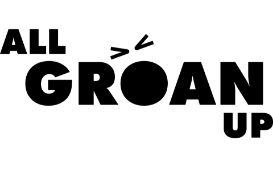
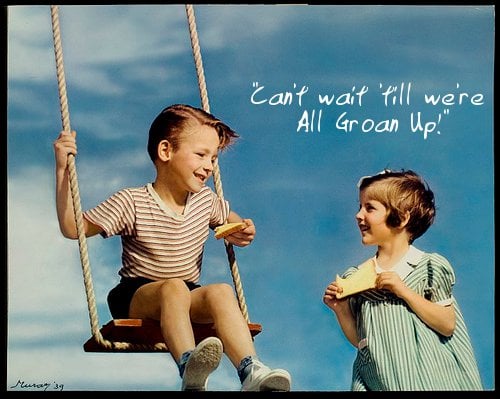


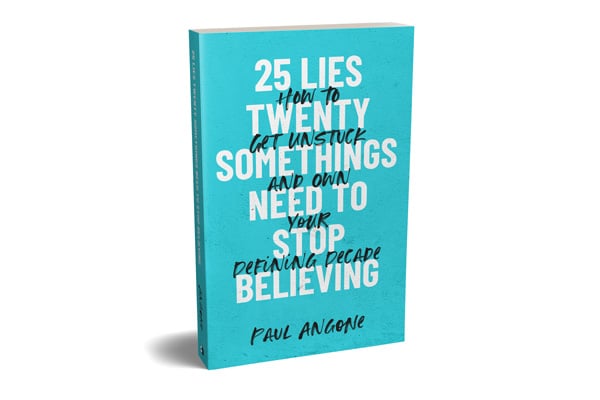
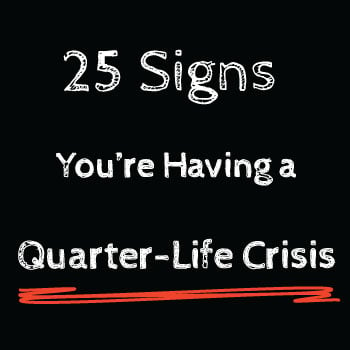

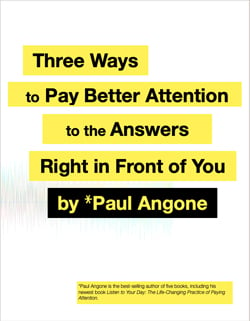
Wow! My wife became aware of this while attending a teaching seminar in Auburn, AL. She was fascinated since it so accurately depicted our son, and to some extent, our daughter. She passed this link on to me, and I found it a brief, down-to-earth explanation for the “theory”.
As I look around at all the younger people in our small hometown, I see it everywhere. This isn’t the same generation my wife and I grew up in. We were expected to either go to college and get right on into a job, get married and start raising a family, go to work right after high school or go into the military. (We’re in our late 50’s).
Thanks for sharing this insight.
Thanks Chuck! Glad I could help bring the theory down to earth a little. When I started studying more about Emerging Adulthood I was amazed how accurately it was describing the reality I’d been living in the last four years. Thanks
Great article! Really puts my situation into perspective. Moved out of my parents house, have had about 5 different jobs in the last 3 years, and the question “why am I here?” keeps popping into my head. Looking forward to reading more of your articles….
Marco! Thanks my friend for the comment. Yep, you sound like you’re finding that sweet spot of “what the heck is all this about!!” It’s not a super-easy season, but an important one for sure.
I’m 23 and in school at the moment been out my parents house for a year….. This really kinda helps put everything into perspective. Tells me I’m not alone.
I am 25, have a high paying job (right out of school), single, and just bought a house.
Stil have no effing idea what I’m doing, and feel more and more lost everyday!
This definatley describes the situation. My parents won’t let me out but I hope to go to university out of the province in September. When I took a semester off school, and was looking for school one of the stores I was thinking of applying to I noticed a older women at the desk (a store I thought of being for young people). At my first job I’d rather be with other young people.
Currently, I’m in college and don’t have any friends, which I hope will change when I go to the university. One of the things, I wouldn’t like is to be alone but its understandable that this group is 2nd after the seniors.
Thank you for this article. I have been searching for anything related to the weird, mixed up feeling I’ve been having as I approach 25 in two months. This was spot on to what’s been circling my mind the past few months- self identity questioning, defining the purpose of my life after all my childhood connections are gone, aloneness… It is a relief to know I am not alone and that there are resources available for me especially after feeling like everything around me was pulling away (when actually I realize I was the one pulling away toward finding myself.) I am noticing that certain topics are becoming more important to me and prior to reading articles like these, I thought I was becoming depressed. Now I’m realizing that my brain and ‘person’ has not stopped forming or growing, which has been one of the most important insights of my recent life yet. It is refreshing to see that I am not exactly “losing” myself since I haven’t exactly completely found myself yet. I blame this on outdated definitions of adulthood. Anyways, thank you again for this resource!
Wow, really well said Amber. Thanks for stopping by and sharing these thoughts that I know many other people who read this will relate to. Emerging adulthood is anything but easy and straightforward.
I really appreciated this line — “It is refreshing to see that I am not exactly “losing” myself since I haven’t exactly completely found myself yet.”
As I wrote in 101 Secrets For Your Twenties — “Getting lost and exploring are pretty much the same thing. The biggest difference is explorers get lost on purpose with purpose.”
I believe that’s the key to this season of emerging adulthood — being purposeful in the lostness. It’s a tough, but extremely important season to go through. You find way more when you’re exploring than when you think you know exactly where you are.